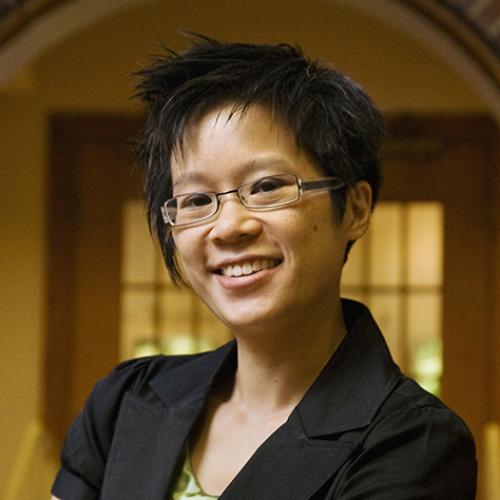Associate Professor Bonnie Mak and doctoral student Beth Strickland will travel to Barcelona, Spain, at the end of the month to speak at the joint conference of the Society for Social Studies of Science and the European Association for the Study of Science and Technology (4S/EASST). The event, “Science and Technology by Other Means,” will be held at the Barcelona Internacional Convention Centre on August 31 - September 3.
Mak, with alumna Julia Pollack (MS ’12), will perform their invited project, “Donna Haraway is our ‘Friend’: Reconfiguring Friendship Bracelets and Bibliography.”
Abstract: This performance uses the friendship bracelet as a way to "re-weave" the academic canon. Friendship bracelets are handmade macramé bracelets of embroidery thread, intended to be worn as a sign of lasting friendship. Our bracelets have been woven to index cross-disciplinary scholarship by women about the making of knowledge, as well as the invisible practice of librarianship that is often undertaken by women. Weaving bibliographic references into bracelets offers a novel way to foreground and consider the labor that underpins knowledge and its infrastructures.
Onlookers are invited to help make visible the contribution of women librarians and scholars by wearing these “citation bracelets” and making their own additions to the bibliography. Not only does the wearing of the bracelets acknowledge the important contributions of women across the disciplines, but it also serves to help publicize and naturalize such work in unconventional venues outside the academy. In this act of radical bibliography, research by women will be brought into contact with audiences in other spaces, thus broadening and amplifying its impact.
Strickland will present her paper, “Implantable Brain Technologies and The Creation of Cyborgs.”
Abstract: The use of implantable technologies within humans sparks debates about the ethical use of such technologies since they penetrate the traditional skin-and-skull boundaries of what constitutes "the body." These boundaries work to designate a person as human versus cyborg when using technology, but what happens to our conceptualization of "human" when technologies are implanted inside the body? The ethical debate about the use of these technologies posits on one end of the spectrum the acceptance of certain implantable devices, those used for therapeutic purposes, and at the other end the unacceptable use of devices to enhance normal physical capabilities.
Individuals who use implantable devices for therapeutic purposes are viewed as still human even though their physical bodies have been merged with technological devices. However, those who use technology as a way to upgrade their body get labeled as cyborgs. Why does this distinction exist, and why does it matter?
Mak is jointly appointed in the iSchool and the Program in Medieval Studies. She teaches courses in the history and future of the book, and offers doctoral seminars on authenticity, reading practices, and knowledge production. Her first book, How the Page Matters (2011), examines the interface of the page as it is developed across time, geographies, and technologies. A second book-length project, Confessions of a 21st-Century Memsahib, offers a critique of the digital materials with which scholarship is increasingly conducted.
Strickland’s research draws on perspectives and methods from internet studies, science and technology studies, and feminist theory to consider the information behaviors of people as they navigate socially constructed technologies. She examines the intersection of humans and machines with a particular emphasis on interfaces and the body as a digitized information resource.
